#yuri grigorovich
Explore tagged Tumblr posts
Text
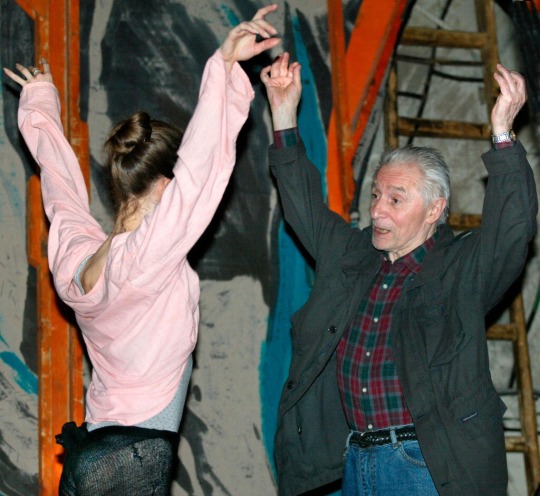
“Yuri Grigorovich leads a final rehearsal of 'A Legend of Love' at the Bolshoi theater in Moscow.”
Photographed by Alexander Nemenov.
23 April 2002.
35 notes
·
View notes
Text
Well, if you want one that particularly highlights Clara's romance with the Nutcracker Prince and her coming-of-age journey, the 1977 Mikhail Baryshnikov version is a classic, with Baryshnikov himself as the Prince and Gelsey Kirkland as Clara.
youtube
Another version I especially enjoy is the Bolshoi staging, choreographed by Yuri Grigorovich. It makes several creative choices, including: (a) making the nutcracker doll a child-sized, dancing mechanical toy, not just a regular nutcracker, (b) having the "international" dancers be dolls from under the Christmas tree, who don't just appear in Act II to perform, but are companions to Marie and the Nutcracker Prince throughout their adventures, (c) having the Mouse King only flee at the end of the big battle, then come back to attack again in Act II and only then be killed, and (d) having Marie and the Prince get married near the end.
It's been filmed multiple times with different casts. For the version with the best picture quality, I'll share the 2010 video.
Christmas is coming, and I need some good recommendations of recordings of the Nutcracker ballet.
The Nutcracker is one my favorite ballets of all time and I love it during the Christmas season. But there's two problems.
I'm very picky with my staging of the Nutcracker
I TRULY HATE, LOATHE, THE STANDARD AMERICAN STAGING
I understand the American stagings are more to train younger dancers so that's why they are mostly observers during the second act, but I love so much the stagings that depict the ballet as a true coming of age romance between Clara/Marie and the Nutcracker.
So, do you all know where I can find some beautiful recordings of the Nutcracker?
@ariel-seagull-wings @princesssarisa @angelixgutz @amalthea9 @thealmightyemprex @natache
#the nutcracker#ballet#videos#mikhail baryshnikov#gelsey kirkland#1977#bolshoi ballet#yuri grigorovich#nina kaptsova#artyom ovcharenko#2010#christmas#complete performance#Youtube
144 notes
·
View notes
Text
Yulia Skvortsova and Dmitry Dorokhov

Yulia Skvortsova (Lunkina) Юлия Скворцова (Лунькина) and Dmitry Dorokhov Дмитрий Дорохов as “Indian Dolls”, “Nutcracker Щелкунчик”, music by Pyotr Tchaikovsky Пётр Чайковский [“The Nutcracker”, libretto by Yury Grigorovich Юрий Григорович based on the fairy-tale “The Nutcracker and the Mouse King” by Ernst Hoffmann, ideas from the scenario by Marius Petipa, choreo by Yury Grigorovich Юрий Григорович, design by Simon Virsaladze Симон Вирсаладзе, Bolshoi Ballet Большой театр, Moscow, Russia (December 24, 2021; Historic Stage).
Source and more info at: Photographer Damir Yusupov Дамир Юсупов (Damir has no social media accounts known to me)
via: Dmitry Dorokhov on Telegram (channel) Dmitry Dorokhov on Facebook Dmitry Dorokhov on Instagram (ballet) Dmitry Dorokhov on Instagram (photography)
Note I: This blog is open to receiving and considering any suggestions, contributions, and/or criticisms that may help correct mistakes or improve its content. Comments are available to any visitor.
Note II: Original quality of photographs might be affected by compression algorithm of the website where they are hosted.
Note III: Some links leading to the English version do not work or contain incomplete information. For this reason, they are published in their original version. You always have the option to translate the page using the right-click on your mouse.
#Bolshoi Ballet Большой театр#Damir Yusupov Дамир Юсупов#Dmitry Dorokhov Дмитрий Дорохов#Щелкунчик#Ernst Hoffmann#Indian Dolls#Marius Petipa#Nutcracker#Pyotr Tchaikovsky Пётр Чайковский#Russian Ballet#Simon Virsaladze Симон Вирсаладз��#The Nutcracker and the Mouse King#Yulia Skvortsova (Lunkina) Юлия Скворцова (Лунькина)#Yury Grigorovich Юрий Григорович
2 notes
·
View notes
Text

Eleonora Sevenard as Aegina (a courtesan) and Artem Ovcharenko as Crassus, "Spartacus", libretto and choreography by Yury Grigorovich, based on the novel of the same name by Raffaello Giovagnolli, music by Aram Khachaturian, costume by Simon Virsaladze, Bolshoi Ballet, Moscow, Russia.
Photographer was not accurately credited by the source.
19 notes
·
View notes
Text
Your Favorite Nutcracker!
7 notes
·
View notes
Video
youtube
30/12/18 Svetlana Zakharova Monologue, basket and death of Nikia
💞 超愛這齣異國芭蕾舞劇的舞者的印度服飾 ✨ 明庫斯:「神殿舞姬」Minkus : La Bayadère 🩰 #LaBayadère: a heart wrenching and unforgettable moment of grace and poetry 一個令人心碎且難忘的優雅和詩歌時刻... 故事發生在傳奇而神秘的印度,講述了一個關於愛、死亡和復仇審判的故事。 Marius Petipa’s exotic ballet, set in legendary and mysterious India, is a story of love, death and vengeful judgement. Yuri Grigorovich’s sumptuous recreation of Petipa’s choreography, with breathtaking sets and costumes designed by Nikolay Sharonov, stars Svetlana Zakharova as the Bayadère Nikiya, Vladislav Lantratov as Solor and Maria Alexandrova as Gamzatti whose alluring presence challenges Solor’s love for Nikiya. The Bolchoi Theatre Orchestra is conduced by Pavel Sorokin.
youtube
10 notes
·
View notes
Text
december is nutcracker season!! and i just wanna say yuri grigorovich/bolshoi’s version is just so so so artistic and i love it sm. alsonhow can u not fall in love with nina kaptsova as marie or artem ovcharenko as the prince???






#ballet#bolshoi ballet#bolshoi#nina kaptsova#artem ovcharenko#nutcracker#nutcracker ballet#russian ballet
1 note
·
View note
Text

Happy birthday to the late Maya Mikhailovna Plisetskaya (Russian: Майя Михайловна Плисецкая; 20 November 1925 – 2 May 2015) was a Soviet and Russian ballet dancer, choreographer, ballet director, and actress. In post-Soviet times, she held both Lithuanian and Spanish citizenship. She danced during the Soviet era at the Bolshoi Theatre under the directorships of Leonid Lavrovsky, then of Yury Grigorovich; later she moved into direct confrontation with him. In 1960, when famed Russian ballerina Galina Ulanova retired, Plisetskaya became prima ballerina assoluta of the company.🎂💖#LovingMemory
1 note
·
View note
Text
0 notes
Text
Khachaturian Adagio of Spartacus and Phrygia (piano arr.) Cyprien Katsaris, with sheet music
Khachaturian Adagio of Spartacus and Phrygia (piano arr.) Cyprien Katsaris, piano with sheet music
https://vimeo.com/495039965

Sheet Music download here.
Spartacus ballet by Khachaturian
Spartacus, ballet in three acts by Armenian composer Aram Khachaturian, known for its lively rhythms and strong energy. Spartacus was premiered by the Kirov Ballet in Leningrad (now St. Petersburg) in 1956, and its revised form was debuted in 1968 by the Bolshoi Ballet in Moscow. Khachaturian later adapted what would become his most famous ballet as a group of suites for orchestra, and, although the ballet remained a part of the Bolshoi’s repertoire, the suites provide the more familiar version. The program of Khachaturian’s ballet (libretto by Yuri Grigorovich) was derived from a book by Raffaello Giovagnolli that details events in a 1st-century-bce Roman slave revolt; its leader, Spartacus, was a Thracian warrior captured in battle. The rebellion’s high point—literally and figuratively—was its seizure of Mount Vesuvius as a stronghold. After two years of unrest, the rebellion was finally put down by Marcus Licinius Crassus, and Spartacus fell in battle. The surviving rebels, numbering some 6,000, were crucified along the Appian Way. Khachaturian’s original composition was based on a narrative sketch that had been prepared earlier for the Bolshoi. It was not a great success, perhaps as much because of the choreography and the story as the music. The 1968 version, with its contrasting moods of vibrant energy and gentle lyricism, was such a hit in Moscow that the Bolshoi took it on the road to Covent Garden the following year. By that time, the composer had already arranged orchestral suites from the ballet music so that Spartacus could reach the broadest possible audience. Although Soviet authorities approved of the ballet, apparently seeing it as an allegory of the Russian people throwing off their tsarist oppressors, it seems quite possible to interpret its message as referring to Russians under communism rebelling against their own oppressive Soviet leaders. Khachaturian, after all, had spent much of his life under the watchful eye of Joseph Stalin, and he had seen friends and colleagues disappear into the night.
SPARTACUS SYNOPSIS
Spartacus is the dramatic story of the leader of a band of slaves uprising against cruel Roman rule. ACT I The military machine of imperial Rome, led by the Roman consul, Crassus, wages a cruel campaign of conquest, destroying everything in its path. Among the chained prisoners doomed to slavery are Thracian king, Spartacus and his wife, Phrygia. Spartacus is in despair. Born a free man, he is now a slave in chains. At the slave market, the men and women prisoners are separated for sale to rich Romans and Spartacus is parted from a grief-stricken Phrygia, who is destined to join Crassus’ harem. At Crassus’ palace, mimes and courtesans entertain the guests, making fun of new slave, Phrygia. Drunk with wine and passion, Crassus demands a spectacle. Two gladiators are forced to fight to the death in helmets with closed visors. When the victor’s helmet is removed, it is Spartacus, and he has killed his friend, Hermes. In despair, Spartacus decides he will no longer tolerate captivity and incites the gladiators to revolt.

ACT II Having broken out of their captivity, Spartacus’ followers call the local shepherds to join the uprising. Spartacus is proclaimed their leader, however he is haunted by the thought of Phrygia’s fate as a slave and he is drawn back to Crassus’ villa to find her. Crassus is at his villa, celebrating his victories, however the festivities are cut short when Spartacus and his men break into the villa. Spartacus engages Crassus in combat and is at the point of killing him when, with a gesture of contempt, Spartacus lets Crassus go. ACT III Crassus is tormented by his disgrace. Fanning his hurt pride, his concubine, Aegina calls on him to take revenge. Spartacus and Phrygia are happy to be together. But suddenly his military commanders bring the news that Crassus is on the move with a large army. Spartacus decides to go into battle but, overcome by cowardice, some of his warriors desert their leader. Spartacus’ forces are surrounded by the Roman legions. Spartacus’s devoted friends perish in unequal combat. Spartacus fights on fearlessly but, closing in on the wounded hero, the Roman soldiers crucify him on their spears. Phrygia retrieves Spartacus’ body from the battle field. She mourns her beloved and appeals to the heavens that the memory of Spartacus lives forever. Read the full article
#noten#sheetmusicdownload#sheetmusicscoredownloadpartiturapartitionspartiti楽譜#sheetmusicscoredownloadpartiturapartitionspartiti楽譜망할음악нотыnoten
0 notes
Text
Yekaterina Krysanova and Artem Ovcharenko

Yekaterina Krysanova Екатерина Крысанова as “Aegina” and Artem Ovcharenko Артем Овчаренко as “General Crassus”, “Spartacus Спартак”, choreo by Yury Grigorovich Юрий Григорович, based on the novel of the same name by Raffaello Giovagnolli, music by Aram Khachaturian Арам Хачатурян, design by Simon Virsaladze Симон Вирсаладзе, Bolshoi Ballet Большой театр, Moscow, Russia.
Source and more info at: Yekaterina Krysanova Official Website Yekaterina Krysanova Official Facebook Yekaterina Krysanova Official Instagram
Note I: This blog is open to receiving and considering any suggestions, contributions, and/or criticisms that may help correct mistakes or improve its content. Comments are available to any visitor.
Note II: Original quality of photographs might be affected by compression algorithm of the website where they are hosted.
#Aegina#Aram Khachaturian Арам Хачатурян#Artem Ovcharenko Артем Овчаренко#Bolshoi Ballet Большой театр#Спартак#General Crassus#Raffaello Giovagnolli#Simon Virsaladze Симон Вирсаладзе#Spartacus#Yekaterina Krysanova Екатерина Крысанова#Yury Grigorovich Юрий Григорович
0 notes
Text
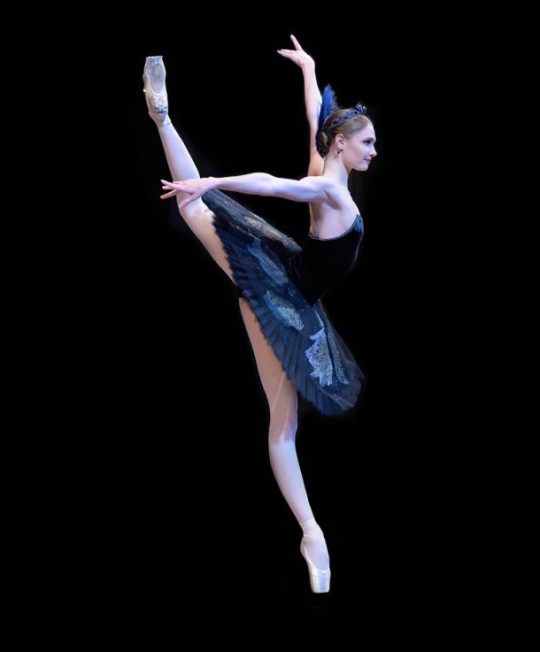
Alena Kovaleva as Odile, “Swan Lake", libretto by Yury Grigorovich, Vladimir Begichev and Vasily Geltser, choreography by Yury Grigorovich (2001), Marius Petipa, Lev Ivanov and Aleksandr Gorsky, music by Pyotr Tchaikovsky, Bolshoi Ballet, Moscow, Russia (September 25, 2019)
Photographer Natalia Voronova
74 notes
·
View notes
Note
Hi Ale, I know you're very busy right now, so no need to respond. I just wanted to reflect a little on the results of the Moscow IBC 2022. I watched the whole thing live from start to finish, as I was off work sick for 2 weeks - so it was a great way of passing time. It was clear to me early on that Koshkareva would get gold, she stood out in her cohort in terms of artistry and strength. I am beyond delighted for Maria Iliushkina whose individual uniqueness as a dancer was also clear to see, even on the livestream. Her Raymonda was stunning, as was her Odile. Nikita was more mercurial, and I feel his partnering let her down in some places (in others they were simply beautiful together), particularly that late lift in the Legend of Love pas de deux. Long story short: even though Iliushkina was not perfect in all respects, her unique quality shone through. I am really happy that the jury saw that, too, and have awarded her gold accordingly. For me she is a modest dancer with a natural reserve which - and this is the interesting thing - she seems to be able to convert into something ethereal and otherworldly, and yet she is still able to channel the demonic too (her Odile is becoming one of my favourites). Her all-round dancerly intuition is utterly uncanny.
Even with Nikita perhaps not performing to what I think can be his level, I had the impression that this was to some extent down to the competition environment. On the Mariinsky stage, he strikes me as more self-assured (kudos to Iliushkina for getting past that and still managing to channel her uniqueness, what a true artist). But he is (I think) so promising and has more artistry to come. There were moments of real beauty in what he did, too. I was very struck by their partnership in the Hans van Manen piece - it sent out imo a strong impression of what they can become as a pair over time (and perhaps already are in some ballets). Their lines were so beautiful - but what I found fascinating was how they danced eeriness in that piece. They could potentially be brilliant in Giselle.
I am skipping over lots of the other brilliant contestants now because I'm aware that this is a v long message (thank you for bearing with!) - but as much as I am thrilled for both Iliushkina / Korneev, I am most disappointed for Anastasia Smirnova. For me beyond everyone in all categories across both junior and seniors she was the stand-out star, very different to Iliushkina, but with a comparable distinctive artistic uniqueness that is already articulating itself very clearly in such a young dancer. And then: great technique and what a jump. How on earth could the jury have awarded her only a silver (and a shared one at that) on the basis of her performances. She was so consistent across her solos, too (at least that is what my admittedly untrained eye tells me). I am no expert, but I was so confident she would get gold (and a part of me sincerely hoped the jury might even think of her for the Grand Prix). Am I totally on the wrong track here? (I also do not mean to diminish the achievements and talents of everyone else who I am not mentioning here - I was very impressed by the other soloists in the senior women's category, but Smirnova seemed to me to have a considerable edge).
Am I right to be wondering about the composition of the jury? What must it be like for e.g. Fateev to be sitting across from a stage that this major talent, no longer at the Mariinsky, is streaking across? Does this not constitute a conflict of interest? I guess not, because most of the jury would be 'out' if that was the case - it's a small world. But the silver did give me pause for thought, and I wondered what your view was.
Posting this separately because it's so long and detailed!
My thoughts in response:
I agree, Koshkaryeva and Iliushkina unquestionably deserved gold
Iliushkina/Korneyev looked much stronger on the pieces they've been doing for a while (eg SL, Raymonda) compared to the new ones
Nikita had some moments where he was definitely the weaker one in the pair. That Legend of Love is certainly what dropped him down in the prizes but the Grand Pas Classique was also not super clean
I agree that he looked more nervous and less self-assured than I'd been accustomed to seeing from him. Even when he was debuting in a lead role along with someone like Skorik, he had more confidence. I too wondered how much of this had to do with the competitive environment. Perhaps he felt the pressure more here than for normal performance.
I too think that Smirnova was robbed, she really was head and shoulders above everyone. Each time she stepped on stage I was wowed. . But perhaps there were simply too many people against her politically for her to prevail...
I know she was never in consideration for the Grand Prix. There was talk that it was going to be given to Iliushkina but that was impossible after their poor LOL.
About the conflicts of interest. At some competitions, most notably YAGP and PDL, teachers/directors can not judge their own students, their scores will be thrown out. (Bo Spassoff famously will give his students ridiculously impossible scores as a joke, he awarded Issac Hernandez 500/100 points at the YAGP finals)
However, I think everyone judged everyone here, simply because the background of the judges is too narrow, there's so much overlap. For example, Tsiskaridze, Zakharova, Fayteev, Eifman, Elvira Mnatsakanyan, Vadim Pisarev, Valentin Yelizariev, and even Yuri Grigorovich have too much history and connections to judge any competitor from VBA or MT totally 'objectively.' If I were to list the BT/ MRAX people... there's almost as many, and tons of overlap between the two. So where do you draw the line? Because that's essentially half the jury!! You can't have them all sitting out because then that totally imbalances the voices of those who don't have all the connections (ex those from non-soviet countries). Considering the egos and tempers of the most powerful people on the panel.....they're going to want their opinions taken into consideration for everything.
#moscow ballet#moscow ibc#moscow ballet competition#ballet#russian ballet#ballet ask#ballerina#nikolai tsiskaridze#yuri grigorovich#maria koshkaryova#maria iliushkina#anastasia smirnova
6 notes
·
View notes
Photo
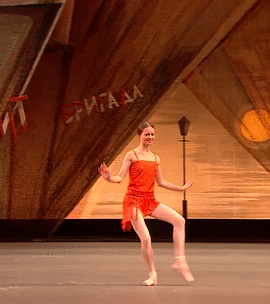
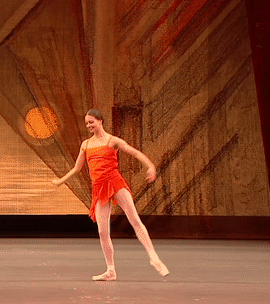
Nina Kaptsova in The Golden Age.
#nina kaptsova#the golden age#bolshoi ballet#bolshoi gif#prima ballerina#yuri grigorovich#ballet#russian ballet#moscow#russia#dance#ballerina#gif#my gif#ballet gif
60 notes
·
View notes
Text
there are two grigorovich giselle’s scheduled at the end of march!!!
12 notes
·
View notes
Photo
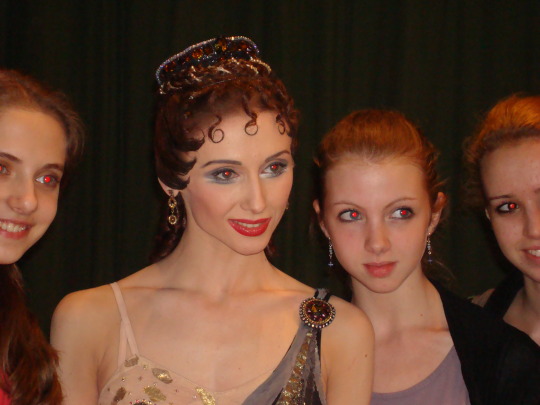
Meeting Svetlana Zakharova backstage, at the end of Bolshoi’s Spartacus, in 2010
43 notes
·
View notes